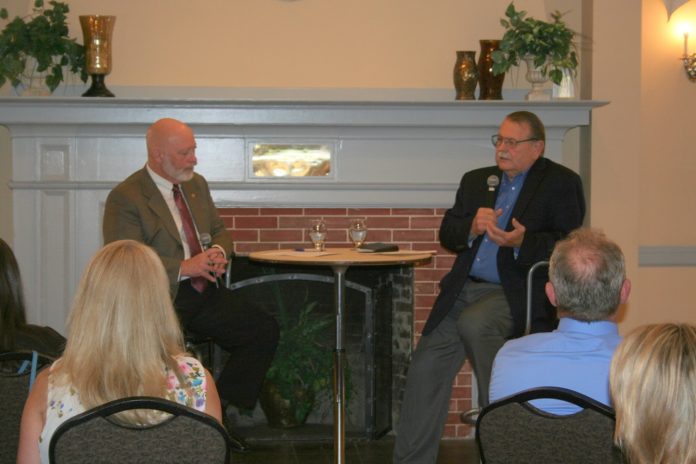
Frank Nichols, CEO of Silicon Forest, a full-service electronics manufacturing services company based in Vancouver, was the featured guest at this morning’s Boardroom Breakfast, held at the Red Cross Building at Fort Vancouver.
Here are 10 things we learned about Nichols and his company during the discussion:
- Nichols grew up on a farm and learned about hard work from his father. His first paid job was driving a tractor on a neighboring farm.
- Initially interested in agricultural engineering, Nichols ended up getting a degree in mechanical engineering and, eventually, found himself working in the world of electronic engineering.
- Silicon Forest employs nearly 100 people. The company builds electronic assemblies at circuit board-level for a number of different industries including aerospace, military, medical and unmanned systems.
- A production line at Silicon Forest represents a $2 million investment. Silicon Forest currently operates three production lines, plus a partial line.
- One of the company’s biggest challenges is keeping up with advancing technology. Nichols said that machine parts need constant updating and the firm spends around $500,000 a year to keep up.
- When it comes to hiring practices, Nichols said his firm tries to “look for people who are excited about something … I can teach anyone to run a machine, but I can’t teach them to show up on time or give that extra 10 percent.” He said passion is key attribute to look for.
- Nichols said he is amazed at how small components in the electronics world have become. Some parts, he said, are the size of a grain of pepper.
- Over the past decade, Silicon Forest’s revenue has increased significantly even though the firm’s employee count has decreased. This, Nichols said, is due to automation.
- When asked about the growth of the local community, Nichols said isolation from the City of Portland inhibits Southwest Washington’s ability to grow. He believes there needs to more bridges across the Columbia River as well as mass transit. He called the demise of the Columbia River Crossing “our biggest infrastructure failure.”
- According to Nichols, there are three main things we need to bring more companies like Silicon Forrest to the region:
- A well-trained workforce;
- Adequate infrastructure to ship products; and
- An integrated community education system that looks at what our community’s needs are.
Register for the Vancouver Business Journal’s next Boardroom Breakfast event by clicking here.








